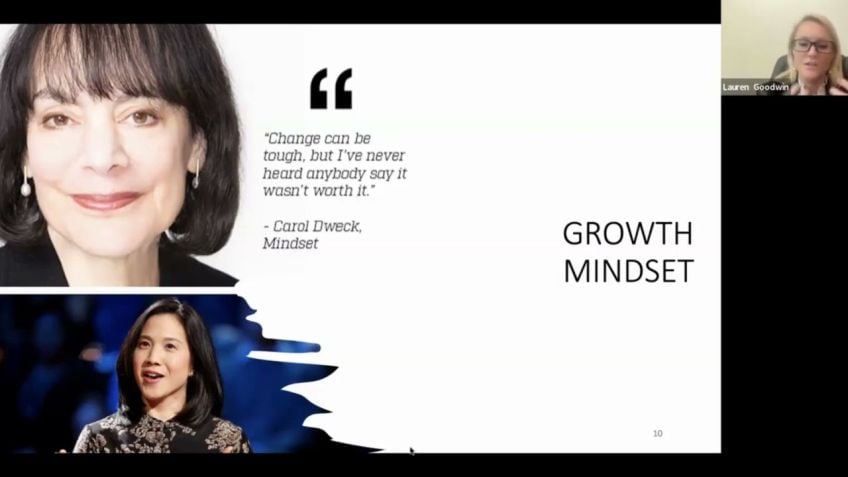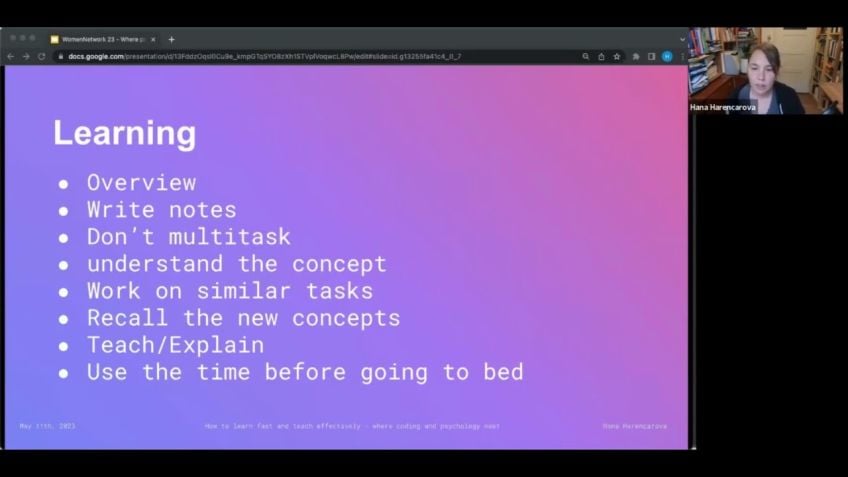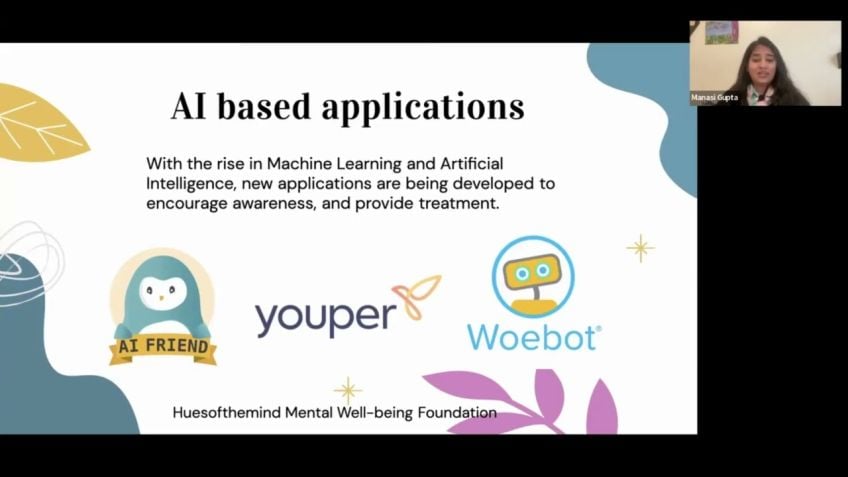Game-based-Learning and Gamification in the classroom by Rasha Shalabi
Rasha Shalabi
Lecturer - Information Systems & TechnologyIntroduction
Hello everyone, my name is Miss Rasha Chalabi and I am a highly experienced trainer, consultant, and lecturer at a prominent educational institution in Kuwait. Today, I will be taking you through the fascinating journey of game-based learning, and gamification in the classroom. This also includes tips and insights on understanding and motivating students for impactful learning and education.
Motivating Students: A Deeper Understanding
Student motivation is often misunderstood but it plays a pivotal role in the learning process. For the uninitiated, motivation refers to the driving force that encourages students to learn, participate, or take action. It is the key to student engagement and retention and plays a critical role in creating a positive and productive learning atmosphere.
Understanding Our Students
In the modern-day, students learn differently due to the advent of technology and the changing environment around them. This makes it extremely crucial for us as educators to understand the thought process of our students to ensure impactful teaching. This shifting learning landscape demands an updated approach to teaching by considering the various backgrounds, age groups, experiences, and majors of our students.
Challenges in Game-based Learning and Education
Every evolution comes with its specific set of challenges and understanding these can help in implementing successful game-based learning solutions. The common challenges of integrating games with education relate to mentality, availability, and implementation.
- Mentality: The misconception that learning cannot be fun and thus, games cannot serve as a platform for learning.
- Availability: Not sure where to find relevant and educational games that can be integrated into the curriculum.
- Implementation: How to effectively use games to teach in the classroom.
Overcoming the Challenges
Changing the mentality about game-based learning is crucial. This can be done via edutainment, a blend of education and entertainment where learning goals are subtly embedded within games. The superior availability of educational games and platforms like Kahoot enhances the scope for game-based learning. Furthermore, methods like augmented reality and virtual reality can seamlessly integrate game and learning into the classroom.
Benefits of Gamification and Game-based Learning
Gamification involves using elements from gaming in a non-gaming context. This includes elements like levels, quests, maps, experience points, achievements, and more to creatively engage students in their learning journey. Gamification can increase a student's drive to learn by creating a fun, interactive and competitive environment.
Game-based learning involves a more direct approach where learners acquire knowledge while playing an actual game. Games such as Minecraft's Education Edition and Angry Birds provide a clear example of game-based learning.
Both gamification and game-based learning can effectively build valuable skills including problem-solving, negotiation, analysis, and networking amongst students.
Conclusion
To conclude, gaming in education can serve as an effective tool for driving student engagement and enhancing the learning experience. With a clear understanding of our students and the right implementation techniques, we can overcome the challenges commonly associated with game-based learning and education.
Your valuable feedback is much appreciated, and all opinions or suggestions regarding these workshops are welcome. For any queries or further assistance, kindly reach out using the provided contact information. Keep gaming and keep learning!
Video Transcription
Hello, everyone. My name is Miss Rasha Chalabi. I'm a trainer and consultant. Uh I'm also a lecturer at uh a college here in Kuwait. Uh But I do a lot of trainings, corporate trainings and consultation today.I'll be discussing with you game based learning and Gamification in the classroom. Our agenda will look like this. Uh We will talk about what is motivation in the beginning and then we will be understanding our students because obviously when you want to um reach out to your students or your audience, you need to understand them better. And number three will be the challenges of using games and education. And number four is going to be games and education in general. OK. So the first thing is what is student motivation? What do you guys think is student motivation? Uh You guys are welcome to uh answer in the chat or open up your mics. I don't mind either way. So what do we think is motivation in general? Yes, those are the two types of motivation. Yes, intrinsic and extrinsic motivation. Yes about. But what is it exactly? This is like those are types but we need to know like, what is it, how does it help us? Excitement to do something, desire to do something. Drive to do something to learn. Yes. Exactly. Yes. The passion to do something. Yes. Exactly.
That is exactly what it is basically. It is the motivation is the driving force that causes a student to take action, whether it's learning or participating or doing anything. Basically. So, motivation is very important because it makes students want to engage. So once students engage with you engagement is the observable behavior uh or evidence basically of that motivation when I'm motivated, I will engage with you. OK. So basically, we can easily say when you're motivated, you can be engaged and then you can be retained as well. This is in short, all good. OK. Next, the next topic is understanding our students. Um Nowadays, things are different than back in the day. Um Students learn differently. We have a lot of technology uh students grow up in different environments. So we need to understand our students.
And for me specifically coming from a training background, uh I usually train different uh backgrounds. I am you trained different people from different age groups, uh different uh experiences, different majors. So it's really important to know your audience before you actually plan or prepare your um uh presentation or your basically material, teaching material and this kind of stuff. So to understand our students better, I will give you a small pop quiz. The first question says, what does this mean? RL? Which number do you think it is Mnemonic for remembering the five planned cell types reverse officers training for Florida. Record of true foreign languages or roll on floor laughing? Number four. Number four. Number four. Yes, great.
Yes, it's very easy. It is very easy. It is obviously roll on the floor laughing because we always use it. It's kind of like an international thing right now. It's kind of like Lol when you say Lol. OK, great. So this means you will do better in the next pop quiz. The next pop quiz says Lol, what does that stand for? What do you think? Laugh out loud? Great. Yes. OK. BRB. Be right back. Yes. Great. Number three. OMW. On my way. Great. Great. OK. Number four. Tt yl talk to you later. Number five. This is actually very tricky. This is something new for the newer generations. I actually learned this from my niece. So it's for the newer generations P OS I, I've given this pop quiz in a previous workshop. I think one person got it. But it's very popular within the teenagers. Nowadays. P OS is parent over shoulder basically whenever there's a parent over their kids, obviously, uh they're gonna message their friends P OS. So the parents wouldn't understand and every generation changes this.
So if you have kids obviously pay attention to this, it does not mean position or whatever it means parent over shoulder. Ok. Great. Next one, number six GN STD L TB BB. Good night. Sleep tight. Don't let the bed bugs bite. Yes. Great, great, great. Number seven. See you later. Yes, exactly. Ok. Number eight eight is actually a gamer's term. Everybody says Gigi. So if you're a gamer, you know what it means. Good game. Yes, exactly. Yes. Good game. So gamers use this a lot GG nine. Number nine. Also this is another gamer turn. Yes. Away from keyboard. Great, great. OK. And number 10, this is very uh clear. We used to use it, I think back in my day even so it is uh got to go. Yes. Ok. Great, great. We're doing great so far. Ok. So in brief, who are our students? Uh me coming from an higher education uh institution, I teach college students most of the time and sometimes corporate students basically. Oh, ifk is your initials? Ok. Ok. Ok. So, um again, uh being a high school uh uh higher education instructor basically, usually I deal with the Gen Z and sometimes I deal with some older generations depending on the training session that I'm having. Basically. Um some of you might be teaching schools, so you might be dealing with the newer generation, which is called Gen Alpha and they're more into tech as well. But in brief, just to give you a brief basically, um I'm a millennial.
So basically, like every generation has their own thing. Uh being a millennial is actually a really great thing because we're the tech savvy, we've seen things uh, before technology came into light and right now, so we can actually compare things. Gen Z are basically the tech natives.
They only know uh technology. Uh I know a couple of times. My niece asked me like, what's, what, what does, um, dial up mean? A lot of my friends are talking about dial up and they don't know what dial up is. They don't know the suffering we had to go through. So different generations mean different things. So this is why uh we need to know our audience. So we can actually reach out to them and give them proper examples and proper methods of teaching to reach out to their inner selves. Ok. So um what are our concerns these days with all of the technology, with everything that's happening with so much access to internet and social media and this kind of stuff. Uh There are a lot of concerns but for us as educators, the most important concerns that we face. The most challenges that we face is the students short attention span. And then sometimes students actually choose not to pay attention because they don't like you or they don't like the topic or the subject. So we have to be likable. We have to do certain things to attract students. They just don't want to do this anymore. So you have to find new ways to attract them. Uh Then we have the lack of textbook literacy, they're not reading enough uh lack of identification or of source quality.
They don't know what's right and wrong, what's legit and what's not. They go on tiktok and they tell me, oh OK. I found this information on tiktok and they think that's legit. They go on Wiki PD and tell me, OK, I found some information on Wikipedia which is not legit. I could change it right now. So they have those kinds of issues. Ok. So we have to try and attract them as much as possible. That's why we go into gaming Gamification and game based learning. What are the greatest challenges of using games in education? The first couple of things we will talk about is obviously games are fun, right? We like playing games. Did you know animals play too? That's actually a fact I have a few cats at my house and they always play all the time. They love playing animals, love to play and we love to play as well. Why? Because it's fun? Ok. What are the greatest challenges of using games in education today? The first thing is, yes, Dolphins do that and they learn. Yes, a lot of animals actually do that. Yes, thank you. Yes. So the first thing is mentality, gaming is not learning. That's what people think availability. Where do I find educational games implementation? How do I use it in my class. So the first thing is the mentality and I'm sorry, I'm going a little bit fast but we only have a short time. So um I'm just going through a lot of information if I'm going too fast, please let me know.
Um So mentality, a lot of people tell you learning is serious and games are fun. So how can we mix those two teachers, parents decision makers say playing is a waste of time. Uh While students say it's a quality time, I can relax, I can have fun, I can learn something. What do you guys think? Is it good? Is it bad? Mhm OK. It's actually pretty good and the evidence is you actually are attending this session. So it's actually pretty good. And there are a lot of researches that says um learning with games is actually better for students. They learn better, they can relate to things better, they understand things better. OK. So how to change this mentality? There's a term called edutainment which means learning goals are hidden behind the entertainment. Huh? Yes, of course, it can be good as long as you limit your time using it. Yes, obviously you can't just have them play games all day long, obviously. Yes. And you have to choose specific games or specific uh things to do for them anyways. Um So how to change this mentality? You use something called entertainment, which means you have to uh help people understand that there are learning goals that are hidden behind the entertainment.
People can play games and learn at the same time, use games with learning goals, show them that games can uh can increase interest in learning. For example. Uh Actually, we'll take the examples afterwards. The availability, there are a lot of educational games, a lot of educational games and a lot of regular games that we can actually gamify. OK, we can use them into learning and I'll give you a couple of examples in a minute. But to find games that you can use in the classroom, you can easily just Google them or you can go to one of the repositories, one of them is called um Kello. OK. So this is basically a, a website that gives you a lot of game uh options you can find to use in your classroom. Hm Implementation, how to integrate game and learning and make connections into uh the classroom material. Basically, we can use multiple things. You can use games like augmented reality, virtual reality. And I'm sure you have heard of this. Uh This is something uh that's commonly used. They use it with education with experiments with learning stuff. It's very common and it's very efficient. Another thing is obviously now we're going into gaming and education specifically, anybody playing games will notice that the problem solving skills and negotiation skills, judgment skills, analysis skills, those kinds of skills are better uh amongst people who play games, even networking and communication.
When you're playing a game that has a lot of networking, you're talking to a few friends here and there. It makes you uh more social, it makes you learn what are social ethics and those kind of things. Um There's a study that says Tetris players develop thicker cortex than those who don't play it. And there's another study that says people who play uh video games, basically special fast paced games have better uh vision, attention cognition. So they are usually better drivers because they're anticipating objects, they're anticipating obstacles, they're uh they're quick to respond to anything that happens. So this is something very useful. Another example is Minecraft. Minecraft has published an edition specifically for education. It's called education edition.
It has a lot of information in it and it teaches you periodic table, it teaches you a lot of uh atoms information, a lot of details, you should check it out. I have a lot planned honestly for you guys, but I'll try to skip a few things just to give you a brief. What is Gamification? Gamification in short is uh using game elements into a non game context. Like what basically the idea of this is you can use leader boards in your classroom, you can use progress, rewards feedback, those kind of things you can do a lot of things in your classroom that will be very helpful. You can use badges for specific achievements. You can use performance graphs, meaningful stories. You can tell them a story about a specific assignment. Everything is different. You can use avatar as teammates. An example of gamifying your learning experience is instead of calling your uh vocabulary basically modules, weeks units, you can call them levels, quests rooms, maps. Instead of saying great grades and great points, you can use exp experience points, gold bars, achievements, instead of saying groups, you can say teams, clans, tribes, instead of saying assignments, you can say quests journeys, different things.
You can create the context of a journey or a story to have students actually want to continue from one assignment to the other. OK. So this is something based on your uh subject of matter. You can just create some sort of context. OK? So what is game based learning? We talked about Gamification, which is easy, we can just do some kind of leader board, give them some ranking or something. But what is game based learning in short, it's uh using actual games and learning something from the game. So basically, you know, angry birds, I'm sure most of you have seen it or played it. Angry birds actually teaches you a lot of physics, it teaches you about the strength, the velocity, a lot of different angles, different things. So it actually teaches a lot of physics stuff.
OK. So this is an example of game based learning. They're actually playing a game but also learning something from it. Another example is, for example, if you play, for example, like Mario Kart or any kind of, uh, driving, uh, like a race car, uh, car racing game or something. Obviously, they have, you play multiple, uh, laps basically and at the end, they get the average, you can ask your students, how did they cal calculate the average? How did they do that? How did you win? How did this happen? So they actually play the game. But in the end, you can find something to teach them at the end. OK. I hope everybody is enjoying this. I'm sorry, I have to skip a lot of things. I thought I would have more time, but those are just a game based learning Gamification benefits. But before we do this, um I just want you guys, this is basically if you guys have any feedback, you can scan it, you can give me any of your feedback because I'm, I'm giving a lot of workshops every now and then. So it would be appreciated if you guys can give me your feedback. And also if anybody would like to contact me, this is my contact information. Usually I give this session for like an hour, an hour and a half, but we don't have a lot of time.
So this is what I can give you. Usually we play games. So thank you guys. Thank you very much. I hope I can give uh a better longer session. Soon. Thank you for everything. Thank you feedback form. If anybody is still here.






